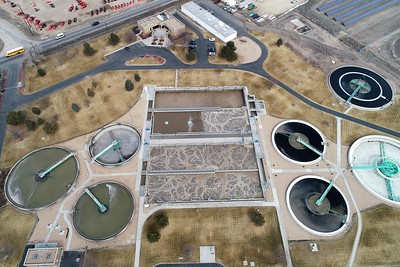A new study by Purdue University researchers reveals that money can buy happiness. In Michigan, happiness runs about $95,000 per year. If happiness is a little too rich for your budget, you can have emotional well-being on an annual salary of $55,000. The study, which will publish in the journal Nature Human Behaviour, was funded by GoBankRate.com.
If the data, which cover all 50 states, are accurate, that’s bad news for community colleges. Graduates from two-year schools often earn a substantially lower annual salary, even 10 years after graduation. Worse, community college graduate earnings tend to peak, and then level out or fall a decade or more after graduation.
The prospect of a time-limited earnings window for community college graduates may turn some students away from a two-year degree program altogether.
If anything, the data speak to the need for community colleges to improve their approach to program design. Additionally, community colleges should introduce new academic programs in high demand areas. (And there are plenty of high-demand areas.)
For example, earlier this week, Wayne County Community College District announced an academic partnership with Bay College (Bay de Noc Community College) in Escanaba. The partnership will expand interest in careers in water management and wastewater treatment. Currently, there is a critical shortage of trained workers in water and wastewater management.
So, this is a perfect example of the type of program that a community college could offer, and that would pay well. Additionally, the mean annual salary for a water/wastewater treatment plant operator exceeded $52,000 in 2021.
Community colleges don’t have to train workers to fill low-wage jobs. Yet, an honest look at the potential wages will show that there is little effort to anticipate the employment and training needs of the county.
Annual salary potential needs improvement
This is actually what the WCC Master Plan should have been. The Administration’s plans for new academic programs (had there been any), should have driven the Master Plan. Instead of strategizing ways to increase the annual salary of students, the WCC Master Plan wanders around, contemplating campus walkability, art installations, “maker spaces” and where to put the retail facilities in the parking lots.
There is a lot of work to be done in Washtenaw County and Michigan. Unfortunately, it doesn’t appear that WCC’s Administration can identify opportunities – real opportunities – to bring high-value, high demand academic programs to Washtenaw County. They seem to be content to generate training plans that lead to $12/hr jobs.
Ironically, the WCC Board of Trustees wants to build a hotel in the shadow of Ann Arbor’s wastewater treatment plant.
Only one of these two facilities represents a real economic opportunity for Washtenaw County.
Photo Credit: City of Greeley, via Flickr





































